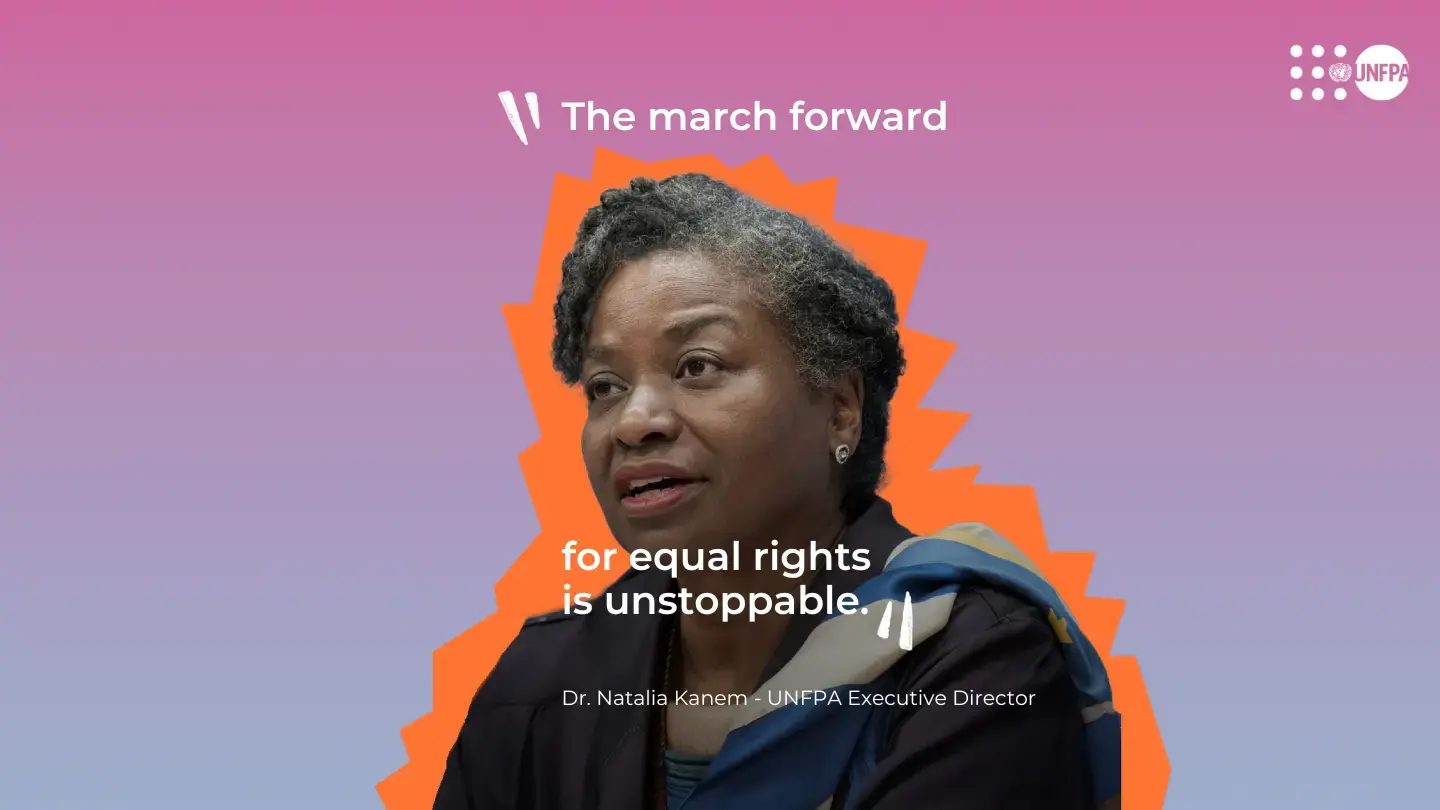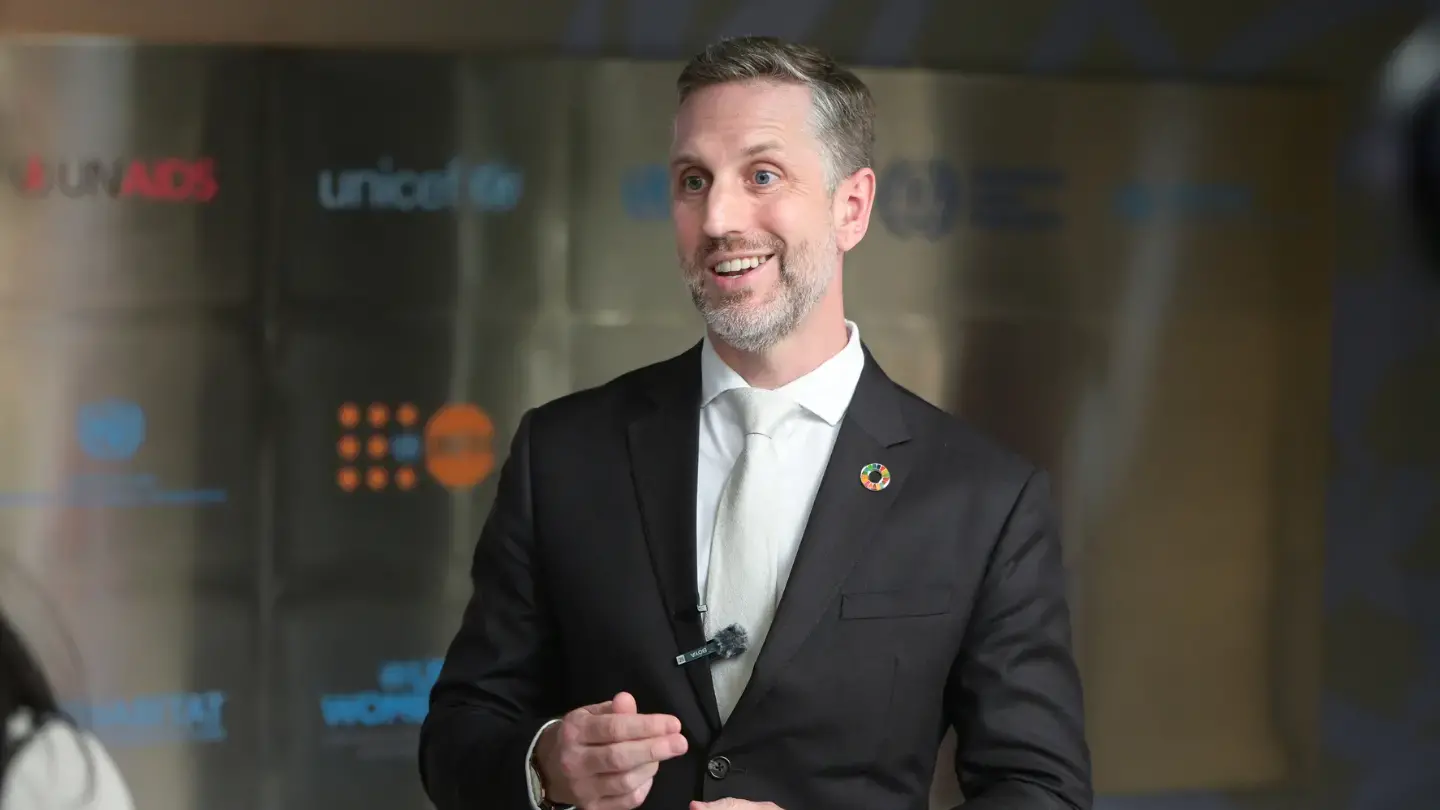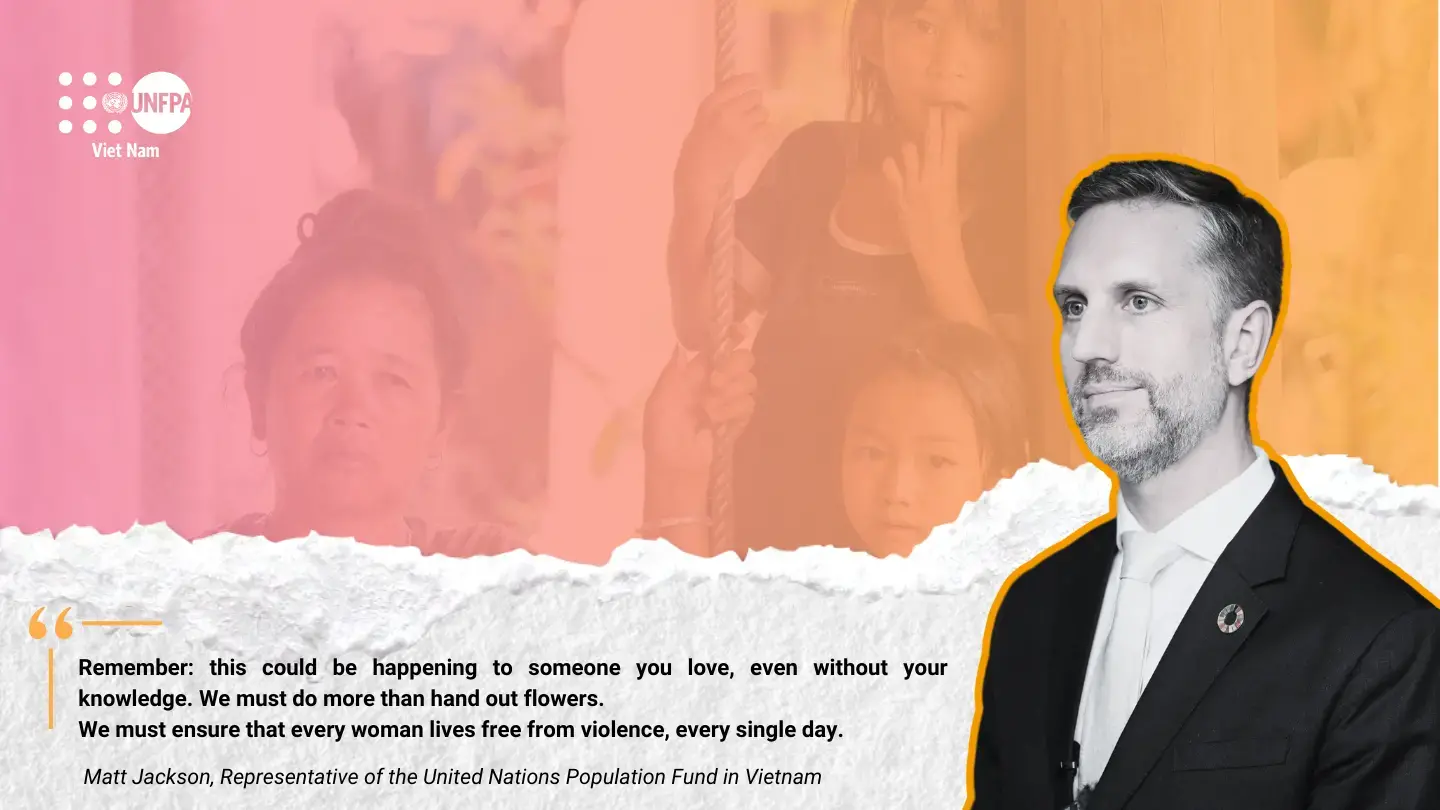HA NOI, 14 May 2018 – In the wake of allegations of sexual harassment against the popular singer Pham Anh Khoa, initially disseminated via social media, UNFPA Viet Nam is dissolving its partnership with Mr. Pham Anh Khoa who had served as an activist on the prevention of violence against women and girls in the country.
The artist was invited to partner with UNFPA Viet Nam on national campaigns to address gender-based violence in 2013-2014 and the 40th Anniversary of Cooperation between UNFPA and the Viet Nam Government in July 2017.
Violence against women and girls is a global scourge. It is one of the gravest violations of human rights and a formidable obstacle in ending gender inequality.
Globally, on average, one in every three women experiences some form of violence in her lifetime, be it physical, sexual or emotional, often at the hands of a spouse or intimate partner or a person in her immediate circle.
In Viet Nam, the National Survey on Domestic Violence against Women, supported by the UN in 2010, showed that 58 per cent of ever-married women said that they had experienced at least one form of violence from someone close, at some point in their lives. Since then, a lot of work has been done and investments made by public and non-governmental actors to raise awareness, and make legal, policy and behavioral changes to end all forms of gender-based violence. Progress has been made, but violence against women still remains a reality at all levels of society.
The topic is still considered too sensitive to discuss in public. Victims of violence are still not sufficiently protected against negative consequences when the speak up and seek justice. They may be considered as somehow responsible for the acts committed against them or their story may not be believed or will be turned against them.
In the past women often kept silent and suffered in isolation. Over the past year, the #MeToo movement has rapidly gained traction around the world. This uprise of women sharing their personal experiences is exposing and confronting widespread sexual harassment and abuse in different industries and professional settings. Millions of people, overwhelmingly women, from across national and socio cultural boundaries have shared their stories, including on social media with the hashtag #MeToo, making it impossible for media, academia, companies and politics to look the other way any longer.
UNFPA Global Goodwill Ambassador Actress Ashley Judd, along with other "silence-breakers", some who are famous, others not, but all very brave, were named TIME Persons of the Year 2017. Their voices against sexual harassment, added to those that had gone before them, helped create a tipping point, igniting the #MeToo movement - and they continue to encourage millions of women and girls around the world to speak up.
In Viet Nam, Ms. Pham Lich, Ms. Nga My and Ms. M.P, who have worked with Anh Khoa, have recently shared their stories of sexual harassment on social media.
UNFPA and the wider UN family in Viet Nam applaud the courage of women who overcome fear and prejudice by speaking up. It is important to encourage other individuals to become "silence-breakers" in Viet Nam and globally about sexual harassment and violence. Stories of survivors will raise awareness of this long-concealed issue, and allow all of society to come together to address it. High-profile cases such as that involving Pham Anh Khoa make the headlines, but for every such case there are many, many more that remain in the shadows, not only in the entertainment sector. Society and Government have a role to play in solving all forms of Gender-based Violence.
Ending violence against women should be a priority for everyone. It is indeed a stated priority with clear targets as well under the 2030 Sustainable Development Agenda and its Sustainable Development Goals that seek ultimately to leave no one behind.
In Viet Nam and globally, UNFPA works with governments and civil society to address gender-based violence and harmful practices against women and girls.
Together, we can make Viet Nam safer and more equitable for women and girls.
Together, we can build a future with zero violence against women and girls.
No MORE silence, no MORE tolerance, no more fear.
______________________________________________________________________________
Note for editors:
According to the United Nations Declaration on the Elimination of Violence against Women, the term violence against women means any act of gender-based violence that results in, or is likely to result in, physical, sexual or psychological harm or suffering to women, including threats of such acts, coercion or arbitrary deprivation of liberty, whether occurring in public or private life.
Definitions of sexual violence and harassment:
Rape: Forcing another person into an act of penetrative sex against their will.
Sexual assault: Sexual contact that a person has not consented to. This includes touching, groping, rape, forced sex, and similar acts.
Sexual harassment: Sexual harassment is unwelcome sexualized verbal or physical behavior. Examples include unwelcome sexual comments and gestures. Sexual harassment is often perpetrated by a person in authority toward a subordinate (such as from an employer to an employee).
Violence against women and girls: Any act of gender-based violence that results in, or is likely to result in, physical, sexual or mental harm or suffering to women, including threats of such acts, coercion or arbitrary deprivation of liberty, whether occurring in public or in private life.
For further information please contact:
Ms. Nguyen Thi Hong Thanh - UNFPA Communications - Tel: 024-38500345 - Email: tnguyen@unfpa.org



